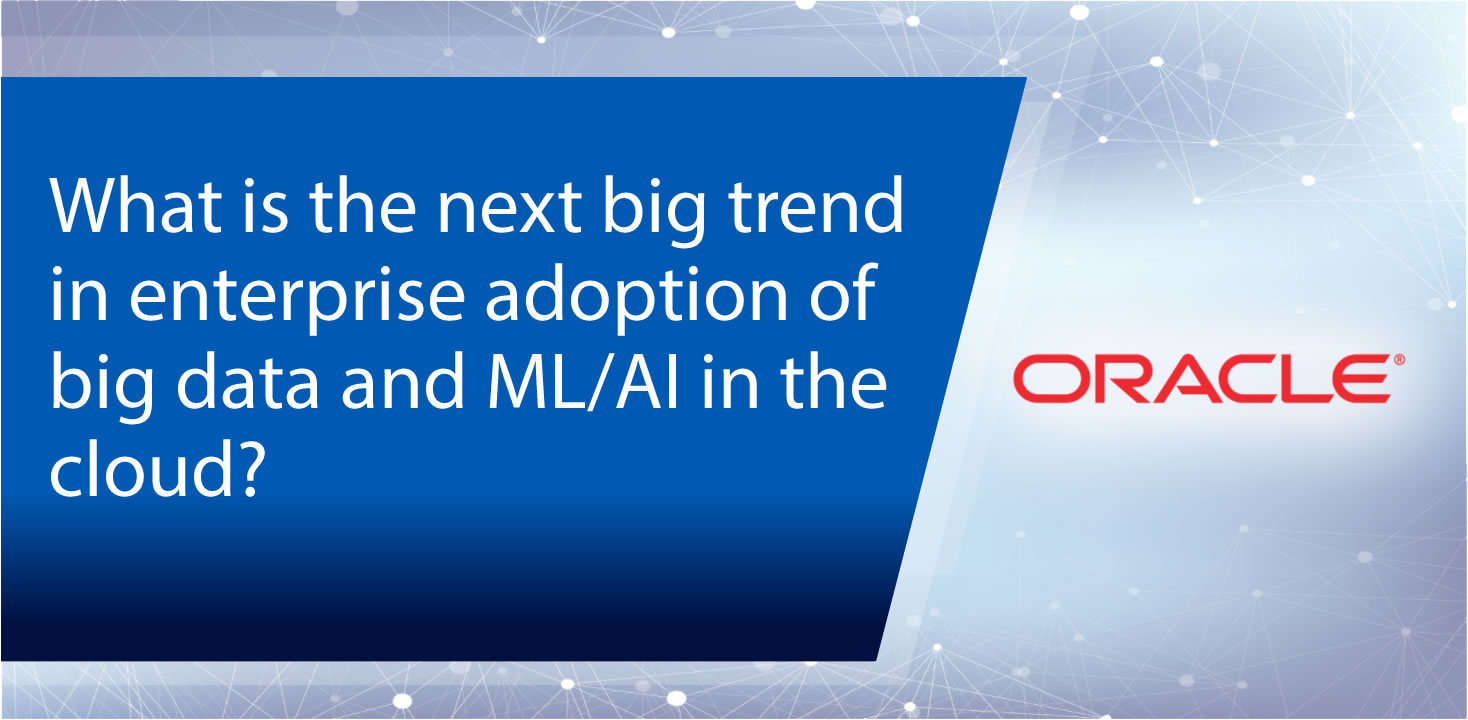
Peter Burris21

















What is the next big trend in enterprise adoption of big data and ML/AI in the cloud? http://www.via-cc.at...

OracleBigData
.@plburris 1 growing trend is the need to be agile. Only then can you expect enterprise adoption of big data and ML/AI in the cloud.

OracleBigData
Agile at Oracle means iterating until you get it right. Neil Mendelson, Oracle – CUBEConversation - #theCUBE #oracle #bigdata https://video.cube36...

Paul Sonderegger
ML/AI will start popping up in less flashy places -- hiring, onboarding, reducing post-sale returns

Neil Mendelson
The next big trend is reading about ML/AI efforts in Annual Reports.

Neil Mendelson
Don't you wish you had an algorithm that pointed you to the most important sources of information and people when you were a new hire

jameskobielus
The next big trend is for enterprises to adopt ML/AI-enabled SaaS offerings in public clouds. More enterprises of all sizes rely on their cloud ERP/CRM provider to offer these data-driven smarts are core features.

Neil Mendelson
We also see the emergence of AI-based Adaptive Intelligence Apps for CX, ERP, HCM, and SCM - See @jpberkowitz on leveraging AI in Modern CX #ModernCX https://youtu.be/D8z...

Kirk Borne
Natural Language Understanding (NLU) for documents (unstructured data); and NLG (N.L. Generation = Narrative Science = automated data storytelling) from structured and un-structured data stores

jameskobielus
Another big trend is for enterprises to use crowdsourced ML/AI capabilities--such as continuous ML training--that supplement their own more limited in-house data science resources.

Kirk Borne
AI/ML will empower machine intelligence, thus robotic process automation across many business units (out-facing and in-facing): CX, UX, and EX (Employee eXperience)

Oracle Exadata
in a study by @Tractica on top AI use cases by 2025, they predict in order 1)algorithmic trading, 2)image recognition/tagging, 3)patient data processing 4)predictive maintenance and 5) content distribution on social media

Kirk Borne
The algorithmic business (#MathematicalCorporation) is here to stay => orgs must embrace a culture of experimentation around data/ML/AI => DataOps!

Paul Sonderegger
Another big trend is the spread of continuous delivery across enterprise apps to take advantage of continuously improving ML/AI

Neil Mendelson
Checkout Oracle Day by Day in the Apps store - you can ask a question via text or voice

jameskobielus
@PaulSonderegger That's DevOps for ML/AI in the cloud. Super-hot!

Kirk Borne
Cognitive Predictive / Prescriptive Maintenance in the IoT / IIoT era will be really big! ... https://www.slidesha... by @DataRPM

Paul Sonderegger
Brilliant!

jameskobielus
My former employer preferred to call it InsightOps. Different strokes...





